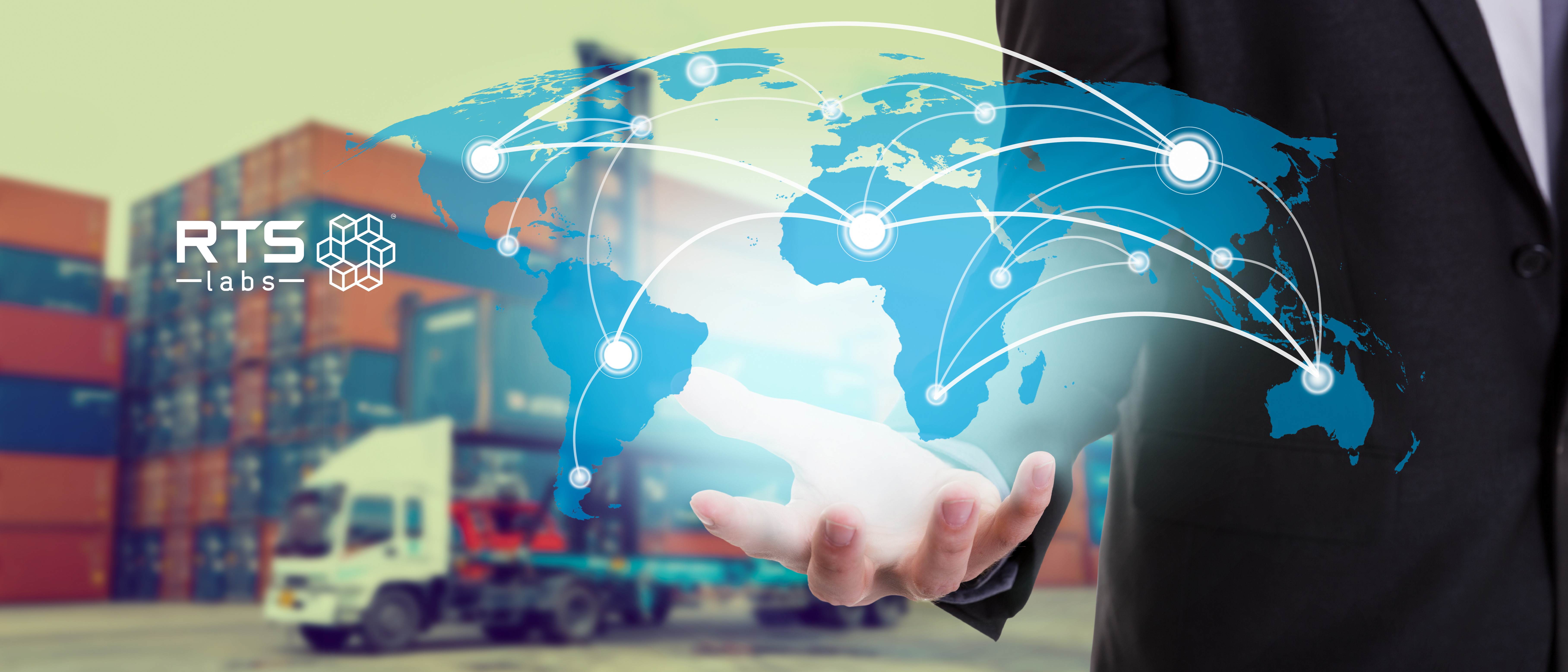- AI consulting services help companies optimize supply chain performance through demand forecasting, inventory optimization, predictive maintenance, and logistics planning
- AI-powered solutions can analyze vast amounts of data to identify patterns, predict trends, and recommend actions to streamline operations and reduce costs
- Choosing the right AI consulting partner with supply chain expertise, end-to-end capabilities, and a collaborative approach is crucial for success
- AI-driven supply chain transformation requires a holistic approach, change management, and continuous improvement to ensure long-term competitive advantage
In today’s frenetic, globally interconnected business environment, supply chain efficiency is more critical than ever for companies to remain competitive and profitable. However, managing complex, multi-tiered supply networks poses significant challenges, from demand forecasting and inventory optimization to logistics planning and risk management.
Artificial intelligence (AI) and machine learning (ML) technologies offer powerful tools to tackle these challenges and drive significant improvements in supply chain performance. By analyzing vast amounts of structured and unstructured data from multiple sources, AI algorithms can identify patterns, predict future trends, and recommend optimal actions to streamline operations, reduce costs, and improve customer service.
However, developing and implementing AI solutions for supply chain management requires specialized expertise that many organizations lack in-house. This is where AI consulting services come in – to help companies identify high-impact use cases, design and deploy tailored AI solutions, and integrate them seamlessly into existing supply chain processes and systems.
Key Areas for AI Application in Supply Chain Management
AI consulting firms work closely with supply chain leaders to apply AI and ML techniques across various aspects of supply chain operations, including:
Demand Forecasting and Planning
Accurate demand forecasting is essential for effective supply chain planning and inventory management. AI algorithms can analyze historical sales data, market trends, customer behavior, and external factors like weather and economic indicators to generate more precise, granular demand forecasts at the SKU level. Machine learning models can continuously learn and adapt to changing patterns, improving forecast accuracy over time.
Inventory Optimization
Holding too much inventory ties up working capital and increases storage and obsolescence costs, while too little inventory leads to stockouts and lost sales. AI-powered inventory optimization tools can determine the optimal stock levels for each product and location based on factors like demand variability, lead times, and service level targets. Prescriptive analytics can recommend the most cost-effective inventory policies and replenishment strategies.
Predictive Maintenance and Asset Management
Unplanned equipment downtime can cause significant disruptions to supply chain operations. AI models can predict when machines are likely to fail by analyzing sensor data, maintenance records, and other performance metrics. This enables companies to schedule proactive maintenance, reduce unexpected breakdowns, and extend asset lifespans. Computer vision and IoT technologies can also help monitor equipment health and detect anomalies in real-time.
Logistics and Transportation Optimization
AI can help companies optimize routing, carrier selection, and shipment consolidation to minimize transportation costs and improve delivery performance.
Machine learning algorithms can analyze vast amounts of data on freight rates, transit times, capacity constraints, and other factors to identify the most efficient and cost-effective transportation plans. Real-time optimization engines can dynamically adjust routes and schedules based on traffic, weather, and other changing conditions.
Supplier Risk Management
Supply chain disruptions due to supplier failures, quality issues, or other risks can have severe consequences for businesses. AI tools can continuously monitor supplier performance, financials, and external risk factors to predict potential issues before they occur. Natural language processing (NLP) can be used to analyze news, social media, and other unstructured data sources for early warning signs. AI-powered risk assessment and mitigation planning can help companies build more resilient, agile supply chains.
Choosing the Right AI Consulting Partner for Your Supply Chain
When selecting an AI consulting firm to help transform your supply chain, consider the following factors:
- Supply chain domain expertise: Look for firms with deep knowledge of supply chain processes, challenges, and best practices across different industries. They should have a track record of successful AI projects that have delivered measurable improvements in supply chain performance.
- End-to-end AI capabilities: The best AI consulting firms provide a full range of services, from identifying high-value use cases and developing AI strategies to data preparation, model development, deployment, and ongoing optimization. They should have a multidisciplinary team of data scientists, engineers, and supply chain subject matter experts.
- Customized solutions: Avoid firms that offer generic, off-the-shelf AI products. Your consulting partner should take the time to understand your organization’s unique supply chain goals, constraints, and priorities and develop tailored solutions that integrate seamlessly with your existing systems and processes.
- Collaborative approach: AI transformation is not a one-time project but an ongoing journey. Look for consulting firms that prioritize knowledge transfer, change management, and upskilling your internal teams to build long-term AI capabilities. They should work closely with your staff to ensure buy-in and adoption of new AI-enabled processes and tools.
- Scalable and flexible infrastructure: As your supply chain AI initiatives grow, you’ll need a scalable and flexible technology infrastructure to support them. Your consulting partner should have expertise in cloud computing, data warehousing, and API integration to ensure your AI solutions can scale seamlessly and adapt to changing business needs.
Driving Supply Chain Excellence with AI
In summary, AI consulting services can help companies harness the power of artificial intelligence and machine learning to significantly improve supply chain efficiency, agility, and resilience. By partnering with experienced AI consultants, organizations can identify high-impact use cases, design and deploy tailored AI solutions, and integrate them seamlessly into their supply chain operations.
To maximize the value of AI in supply chain management, it’s essential to take a holistic, end-to-end approach that encompasses demand planning, inventory optimization, logistics, supplier management, and other key areas.
It’s also critical to prioritize change management, talent development, and continuous improvement to ensure sustainable, long-term success.
With the right AI consulting partner and a commitment to data-driven decision making and innovation, companies can transform their supply chains into a source of competitive advantage in an increasingly complex and dynamic business landscape.
FAQs: Your AI Supply Chain Questions Answered
Q: How quickly can I expect to see results from implementing AI in my supply chain?
A: The timeline for seeing results varies depending on the specific AI solutions implemented and the complexity of your supply chain. Some areas, like demand forecasting, can show improvements relatively quickly (within weeks or months), while more complex projects like predictive maintenance may take longer to fully realize the benefits.
Q: Do I need a large IT team to adopt AI for my supply chain?
A: Not necessarily. AI consulting firms typically offer end-to-end services, from solution design and implementation to ongoing support. They can work with your existing IT team or provide the necessary technical expertise to implement and maintain AI solutions.
Q: How much does it cost to hire an AI consulting firm for supply chain optimization?
A: The cost of AI consulting can vary widely based on the scope of the project, the complexity of the AI solutions, and the experience level of the consulting firm. It’s best to get quotes from multiple providers to compare costs and find a solution that fits your budget.
Q: What are some common challenges businesses face when implementing AI in their supply chain?
A: Some common challenges include:
- Data quality and integration: AI relies on accurate and well-structured data. If your data is incomplete or siloed, it can hinder the effectiveness of AI solutions.
- Change management: Implementing AI often requires changes to existing processes and workflows. It’s important to manage these changes effectively to ensure successful adoption.
- Talent gap: You may need to hire or train employees with the skills to manage and maintain AI systems.
Q: How do I choose the right AI consulting partner for my supply chain?
A: Consider these factors when selecting a consultant:
- Supply chain expertise: Ensure they have a deep understanding of supply chain challenges and best practices.
- AI capabilities: Look for firms with a proven track record in developing and implementing AI solutions for supply chain optimization.
- Customization: The consultant should be able to tailor solutions to your specific needs and goals.
- Collaborative approach: Choose a partner who prioritizes knowledge transfer and empowers your team to manage AI systems independently.
Q: Is my industry a good fit for AI in the supply chain?
A: AI can be beneficial for almost any industry with a supply chain. Whether you’re in manufacturing, retail, healthcare, or any other sector, AI can help optimize your supply chain processes and improve efficiency.







